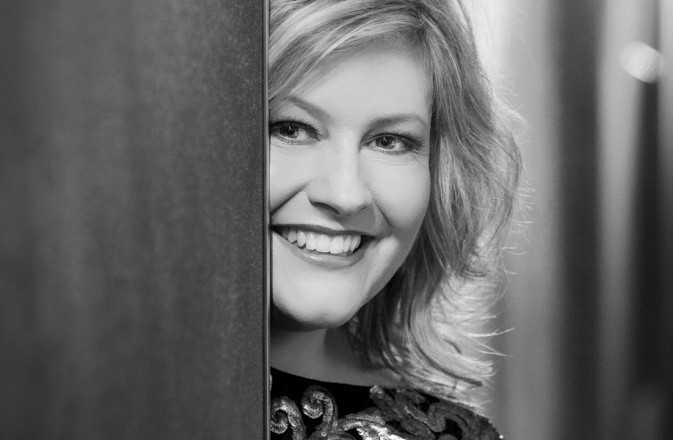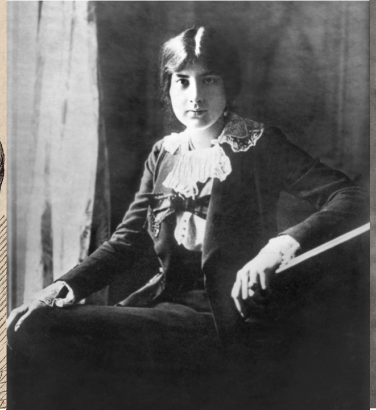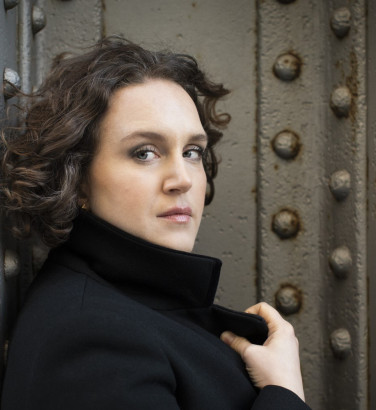
Chloé van Soeterstède on Emilie Mayer
20 Mar 2023
News Story
Emilie Mayer is yet another woman composer whose work was swiftly forgotten after her death, but of those featured in the current SCO Season, she appears to have been the most successful during her own lifetime.
Being a single woman of means very likely worked to her benefit – the social expectation of giving up her musical activities in favour of becoming a wife and mother was never a concern – but she can hardly be said to have been idle. The composer of eight symphonies and a great deal of chamber music, she met with some popular success but remained unpublished, which would account in part for her swift fall into obscurity when she died.
Uniquely among the works by female composers performed by the SCO in the 2022/23 Season, Mayer’s Symphony No 1 is to be conducted by a woman, the French conductor Chloé van Soeterstède (on 19-21 April). As such, it seemed only right to interview her for her own perspective on this long-neglected composer.

Emilie Mayer (1812-1883)
How did you first come across the music of Emilie Mayer?
During COVID, with quite a lot of time on my hands, I researched female composers who had been forgotten over the centuries. Emilie Mayer was one of them. When the Nordic Chamber Orchestra suggested we perform her 1st Symphony, I was delighted! I had never conducted any of her works before, so this was even more exciting.
I have programmed her music for future concerts as I find her narrative interesting. There are so many possibilities for shape and texture.
She was described in her lifetime as a ‘female Beethoven’. Would you agree?
Beethoven was a pioneer and so was she. Mayer's writing is similar to Beethoven’s in terms of structure and style. But on the harmony side, she takes very sudden and very unexpected directions, composing with a very wide palette of tone, making her very unique.
Where would you place Mayer in relation to the other female composers of the period, for example Clara Schumann and Fanny Mendelssohn?
I have not conducted either Clara Schumann or Fanny Mendelssohn's music yet but I can say that the three of them have a unique harmonic language of their own. Of course they are all sisters of the same period so in some ways, their styles are very similar. But Mayer is perhaps more adventurous in harmonic changes.
[Mayer composes] with a very wide palette of tone
To what extent does the glass ceiling she had to contend with as a female composer still apply to women in the music industry today?
As a female (not necessarily composer), Mayer faced great challenges such as not getting paid the same as men, having to juggle childcare as well as working - something I personally face now as I have just had a daughter - not being programmed because most concerts were featuring male composers only - happy to say this is changing nowadays, slowly!
You’re following Mayer’s Symphony No 1 with Berlioz’ Les nuits d’été, with Karen Cargill as soloist. Was it tempting to suggest repertoire by a female composer instead, and if so, what would it have been?
To me, it is important when thinking of programming to think of unity. It can be unity of genre, but also the unity of colour: the Berlioz - we often forget he offers colours from the late 18th century as he was born in 1803 - and the Beethoven (perhaps especially Symphony No 8) marry well together, because of their transparency. Mayer also offers this quality in some specific themes. Karen Cargill's voice adds a depth and a different colour to the palette in the Berlioz as her timbre is very rich but also offers a very clear diction, exactly what we want for this Berlioz.
If not programming the Berlioz, I would have suggested something completely different but keeping some of the same colours. For example, something contemporary such as Jessie Montgomery or Katarina Leyman or a contemporary of Mayer such as Fanny Mendelssohn.

Summer Nights with Karen Cargill
Join Chloé van Soeterstède, Karen Cargill and the Orchestra for a concert of luminous colours, from the bittersweet to the exuberant - all introduced by the drama of Mayer's Symphony No 1.
Related Stories
![A drawing and two photographs of women in distinctive fashions of the period (around 1855, 1918 and 1913), all three looking out towards the viewer]()
Lili Boulanger et les autres: female French composers
20 May 2024
Where do Louise Farrenc and Cécile Chaminade fit into France's rich history of female composers?![]()
Helen Grime: "I wanted to set poems about Joy"
12 February 2024
We speak to composer Helen Grime ahead of the UK premiere of her song cycle 'It will be spring soon'.![]()
Errollyn Wallen: "anyone from anywhere can be a composer"
2 October 2023
Ahead of the world premiere of her Dances for Orchestra, an interview with composer Errollyn Wallen.


